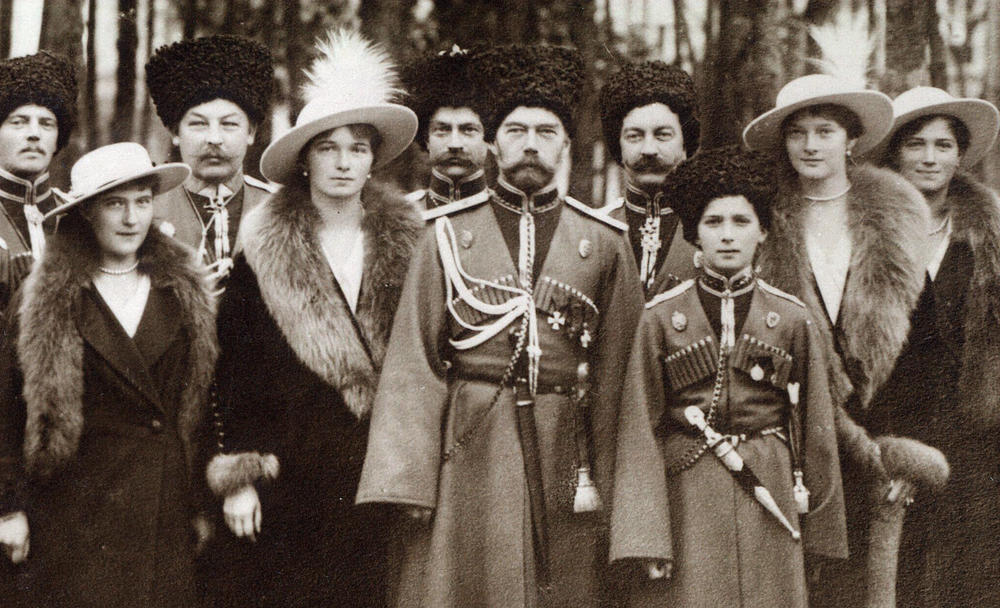Section Branding
Header Content
The 300 Year Reign Of The Romanovs
Primary Content
Back in the days when local TV stations ran old movies late at night, I watched for the first time “Rasputin and the Empress,” the 1932 picture that was a showcase for the acting talents of the remarkable Barrymore family. It was based on the true story of the hypnotic hold the mystic Grigory Rasputin had on Czar Nicholas and Czarina Alexandra in the years leading up to the Russian Revolution. Ethel Barrymore was Alexandra, Lionel was the devious and manipulative Rasputin and John played Prince Chegodieff, often rumored to be the man who killed Rasputin to end his mesmerizing hold on the royal family.
If you’ve never seen it, it’s a great picture. Here’s a scene with Barrymore playing Rasputin at his most evil best talking to two of the czar’s children: Prince Alexi and Anastasia. They call him “Father” because that was his wish:
https://www.youtube.com/watch?v=4KcIR948L6I
Ever since seeing that movie as a teenager, I have been fascinated by the history of czarist Russia; and that’s why I was eager to talk with Simon Sebag Monteifore about his new book “The Romanovs, 1613 to 1918.” His stories about the czars and czarinas are like a Russian version of “Arabian Nights: One Thousand and One Nights.”
Monteifore’s book is a fascinating look at the 300 year reign of one of the most powerful political dynasties in world history. The line of 20 czars and czarinas included military and political geniuses who built Russia into a vast and mighty empire. But there were also brutal sadists, sex perverts, madmen and murderers in the ranks of the royal family. From Peter the Great, who had his own son tortured and murdered to retain power…to the wrenching assassinations of Nicholas and Alexander and their five children at the hands of the Bolsheviks, this is one heck of a story!
And book critic Kate Tuttle returns. We asked her to pick the best of the books she’s been reading for her reviews for the Boston Globe. She’s all about non-fiction, but as you’ll see, she picked books with stories as interesting as any novel you may read this summer.
- "Into the Black: The Extraordinary Untold Story of the First Flight of the Space Shuttle Columbia and the Astronauts Who Flew Her" by Rowland White (Touchstone)
- "Neither Snow Nor Rain: A History of the United States Postal Service" by Devin Leonard (Grove Atlantic)
- "The Vanishing Velázquez: A 19th Century Bookseller's Obsession With a Lost Masterpiece" by Laura Cumming (Scribner)
- "Oneida: From Free Love Utopia to the Well-Set Table" by Ellen Wayland-Smith (Picador)
- "A Burglar's Guide to the City" by Geoff Manaugh (FSG)


